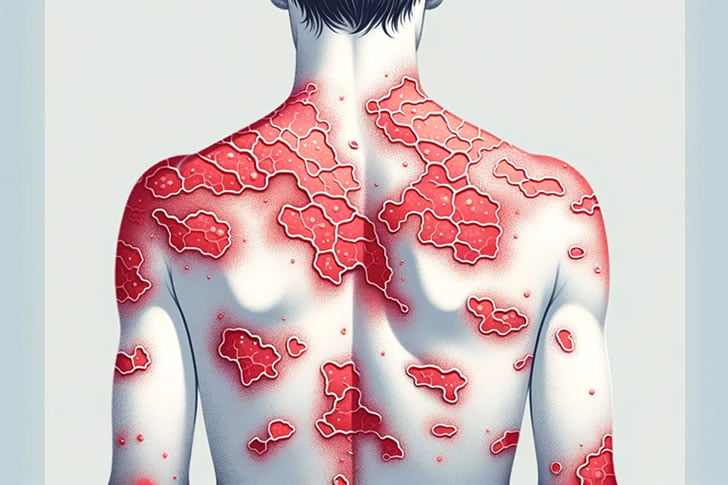Plaque psoriasis is a common chronic skin condition marked by raised, red, scaly patches known as plaques. Managing it involves recognizing symptoms and exploring effective treatments.

Recognizing Plaque Psoriasis Symptoms
To manage plaque psoriasis effectively, the first step is understanding its symptoms. Here are some ways to identify them.
Common Symptoms
: The very notable symptom of plaque psoriasis is red patches of skin covered by thick, silvery scales. These plaques can be itchy and painful.: Affected skin may become dry and crack, sometimes bleeding, further compounding the irritation.: Persistent itchiness and discomfort are common, significantly affecting one’s quality of life.: Psoriasis can also affect the nails, causing them to thicken, discolor, or become pitted.: Some individuals may experience symptoms similar to arthritis, known as psoriatic arthritis, in conjunction with skin symptoms.Effective Treatment Options for Plaque Psoriasis
While there is no cure for plaque psoriasis, various treatments can help manage symptoms and flare-ups.
Topical Treatments
: These anti-inflammatory drugs are often the first line of treatment. They reduce inflammation and slow cell turnover.: Synthetic forms of Vitamin D (like calcitriol) slow down skin cell growth, which can help manage plaque formation.: These compounds, derived from Vitamin A, can reduce inflammation and decrease rapid skin cell growth. : An older treatment option that helps reduce scaling, itching, and inflammation. Available in shampoo, cream, and oily forms.: Hydrated skin is less prone to cracking and irritation. Regular use of moisturizers can help keep symptoms at bay.Light Therapy
: Exposure to ultraviolet B light can help reduce symptoms in some patients. It's administered in controlled doses under physician supervision.: This involves taking a drug called psoralen followed by exposure to UVA light, which penetrates deeper into the skin than UVB.Advanced Treatments
For severe cases, more advanced treatments may be necessary:
Systemic Medications
: Reduces inflammation by suppressing the immune system. Typically considered for more severe cases.: An immunosuppressant that can bring rapid relief but is often limited to short-term use due to potential side effects.: These are newer treatments targeting specific parts of the immune system. Examples include adalimumab, etanercept, and ustekinumab.New and Emerging Treatments
: These new oral medications (e.g., tofacitinib) target specific parts of the immune response and are showing promise in managing symptoms.: A newer class of medications that helps reduce inflammation by blocking the enzyme PDE4.Lifestyle and Home Remedies
In addition to medical treatments, lifestyle changes and home remedies can significantly improve symptom management.
Diet and Nutrition
: Foods rich in omega-3 fatty acids (like fish and flaxseeds), fruits, and vegetables can help reduce inflammation.: Certain foods and beverages might trigger flare-ups. Common culprits include alcohol, red meat, and dairy.Stress Management
Stress is a known trigger for psoriasis flares. Techniques like meditation, yoga, and deep-breathing exercises can be beneficial.
Skin Care Routine
: Use mild, fragrance-affordable cleansers to avoid irritating the skin.: Apply thick, greasy moisturizers right after a bath or shower to lock in moisture.: Keep nails short to prevent damage from scratching. Consider using cold packs or baths to alleviate severe itching.Bathing Practices
: Hot water can dry out and aggravate the skin. Opt for warm baths.: Adding Epsom salts, Dead Sea salts, or colloidal oatmeal to the bath can help soothe and remove scales.When to Seek Professional Help
While many can manage plaque psoriasis with over-the-counter products and lifestyle changes, it’s essential to consult a healthcare provider if:
Symptoms are severe or widespread.Over-the-counter treatments aren't effectively managing the condition.Experience joint pain or swelling, which might indicate psoriatic arthritis.There are significant changes in the appearance or behavior of plaques.Conclusion
Understanding the symptoms of plaque psoriasis and exploring various treatment options, both medical and lifestyle-related, can greatly improve the quality of life for those affected by this condition. Always consult a healthcare provider to tailor treatments to individual needs and ensure optimal care.









